We may not have the course you’re looking for. If you enquire or give us a call on 01344203999 and speak to our training experts, we may still be able to help with your training requirements.
Training Outcomes Within Your Budget!
We ensure quality, budget-alignment, and timely delivery by our expert instructors.
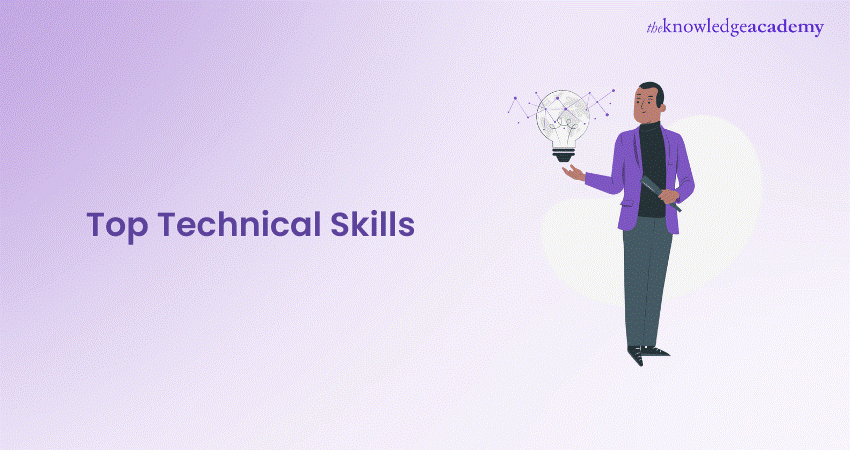
Today's job market is nothing if not a high-tech playground, and the right skills can be your golden ticket to an assured career excellence. Whether you are building apps, decoding data, operating AI or outsmarting Cyber threats, technical expertise is what employers crave.
To help you find your place in the modern landscape of fellow tech-savvy talents, this blog has assembled the 25 most in-demand Technical Skills reshaping the current job market. So read on and future-proof your career!
Table of Contents
1) What Are Technical Skills?
a) Programming
b) Artificial Intelligence
c) CAD Software
d) Graphic Design Software
e) DevOps Tools
f) Robotics
g) Blockchain Technology
h) Asset Management
i) Corporate Finance
j) Data Science
k) Digital Marketing
l) Financial Planning
m) Healthcare
2) Conclusion
What are Technical Skills?
Technical Skills are generally hard skills acquired through training or education and used to accomplish a given task. Most professionals need some technical skill knowledge, owing to the nature of today’s work environment. The results of these skills are evident in things such as Social Media, email, Cloud-based applications, and wireless devices that drive our personal and professional lives.
No one can navigate today’s high-tech working world without rudimentary Technical Skills. The trick is to know more than the bare minimum and rise to the benchmark of a tech skill powerhouse that recruiters look for. Let’s explore some of the most in-demand Technical Skills:
Programming
Increased internet and mobile computing usage means an increased demand for Software and applications to support the end users. In turn, this demand requires professionals trained in coding and programming. Such skills can be applied in many areas, including:
a) Artificial intelligence (AI).
b) Algorithms and data structures.
c) Programming languages (e.g., JavaScript, Python, C++, HTML, SQL).
d) Software testing
Artificial Intelligence
To succeed in the field of Artificial Intelligence, one must develop a combination of technical and analytical skills, including the following:
a) Proficiency in languages like Python, R, Java, or C++.
b) Strong understanding of linear algebra, calculus, and probability.
c) Knowledge of Machine Learning algorithms, data processing, and model evaluation techniques.
d) Skills in handling large datasets using SQL, MongoDB, or similar technologies.
e) Familiarity with AI frameworks such as TensorFlow, PyTorch, and Keras.
f) Understanding the domain where AI is applied (e.g., healthcare, finance, etc.).
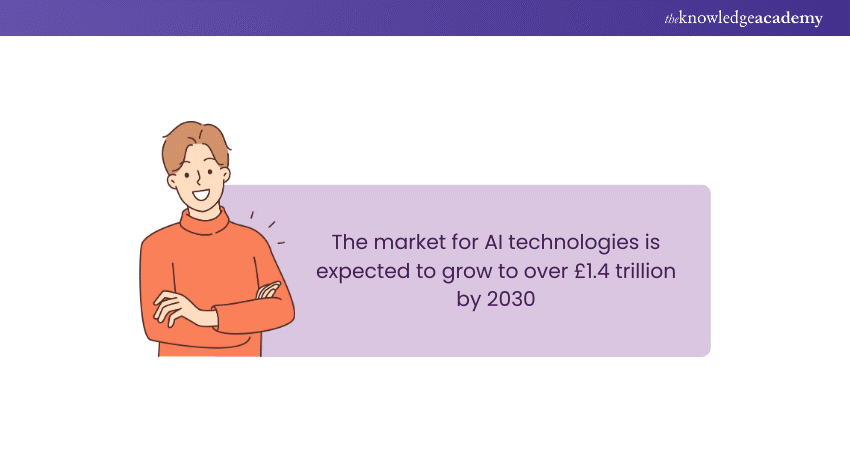
CAD Software
Computer-aided design (CAD) refers to the use of computers in the design process of objects, structures or buildings. It's used to create accurate 2D drawings and 3D models. These are some things to consider in this area:
a) Familiarity with Software like AutoCAD, SolidWorks, Revit, and SketchUp.
b) Ability to craft and manipulate 3D models and detailed 2D drawings and blueprints.
c) Understanding of structural planning and design principles.
d) Proficiency in Mathematics and Geometry for accurate measurements and calculations.
e) Clear documentation of design processes and changes.
Graphic Design Software
Graphic Design Software is essential, allowing designers to create, edit, and manipulate visual content efficiently. It provides tools for layout design, digital art, typography, and image editing, which helps in producing high-quality graphics. Consider these areas:
a) Adobe Creative Suite (Photoshop, Illustrator, InDesign).
b) Web design (HTML, CSS, JavaScript).
c) UX/UI design.
d) Prototyping tools (Sketch, Figma).
e) Digital illustration tools.
DevOps Tools
DevOps tools are vital for streamlining the Software Development lifecycle. Important DevOps tools include:
a) Version control tools like Git (GitLab, GitHub, Bitbucket).
b) CI/CD tools like Jenkins, GitLab CI/CD and CircleCI.
c) Configuration Management tools like Ansible and Puppet.
d) Containerisation and orchestration tools like Docker and Kubernetes.
e) Cloud Computing and storage tools like AWS and Azure.
Robotics
The significance of Robotics has increased in recent years as it helps automate tasks and makes them efficient. One needs to have several skills to excel in this field, such as:
a) Programming knowledge.
b) Knowledge in Mechanical, Electrical, and Computer Engineering.
c) Strong foundation in Mathematics and Algorithmics thinking.
Industries that use robotics include:
a) Automotive.
b) Electrical/Electronics.
c) Metal & Machinery.
d) Healthcare.
e) Search and Rescue.
f) Stationary professional services (Like those with medical and agricultural applications).
g) Mobile professional services (such as Construction and underwater activities).
h) Automated guided vehicles (AGVs) that transport large and small loads in logistics or assembly lines.
Blockchain Technology
Blockchain is a distributed and decentralised ledger system that records transactions across multiple computers securely. It employs cryptographic techniques to ensure data transparency, integrity, and immutability.
Blockchain is widely used in industries like:
a) Finance for secure payments as in Cryptocurrency.
b) Supply chain for transparent tracking.
c) Healthcare for safeguarding patient data.
d) Real estate for efficient property transfers.
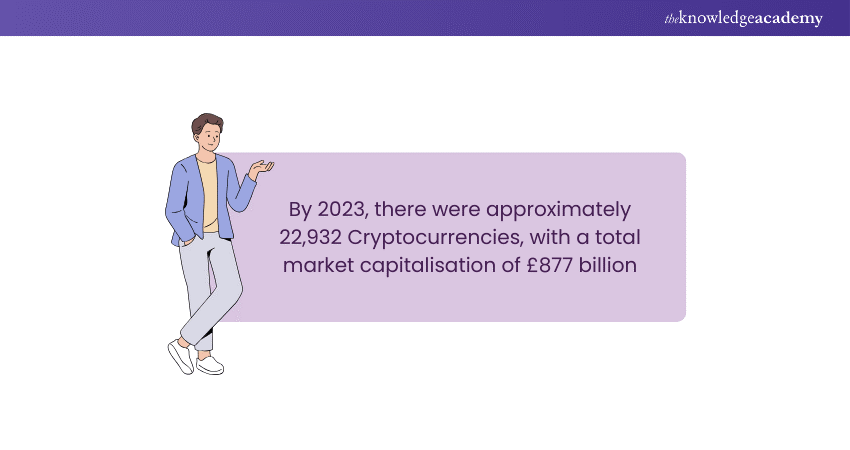
Its applications extend to smart contracts, decentralised apps, and voting systems, driving innovation and trust across diverse sectors.
You must be well-versed in the following:
a) Blockchain architecture.
b) Cryptography.
c) Data structures.
d) Smart contracts.
e) Web Development.
f) Distributed systems.
g) Programming Languages.
Asset Management
Asset Management is the process of creating, maintaining, and optimising assets cost-effectively throughout their lifecycle. It focuses on maximising value, minimising risks, and overseeing assets as they contribute to organisational goals.
It's vital across industries such as:
a) Finance, which involves managing investment portfolios,
b) Infrastructure, where it ensures effective maintenance of physical assets.
c) IT, where it tracks and optimises software and hardware
d) Manufacturing, where it ensures machinery operates efficiently, reducing downtime and improving productivity.
To excel in this field, you’ll need proficiency in:
a) Portfolio Management software
b) Bloomberg Terminal
c) Risk Analysis tools
d) Financial Statement Analysis
e) Trading platforms
Transform imaginative concepts into tangible computer programs with our Software Engineering Courses - Sign up now!
Corporate Finance
Corporate Finance is a sub-field of finance focusing on the financial activities related to running a corporation. It is primarily concerned with investment decisions, capital structuring, and funding sources.
The Technical Skills associated with this field includes:
a) Financial planning & analysis (FP&A).
b) Budgeting.
c) Capital allocation.
d) Treasury Management.
Data Science
Data Science is about leveraging scientific methods to harness the potential of data, uncover patterns, make predictions, and drive informed decision-making across various domains.
The Technical Skills involved in this field include:
a) Big data technologies (Hadoop, Spark).
b) Data Analysis (Python, R).
c) Statistical modelling.
d) Machine learning (TensorFlow, scikit-learn).
e) Data visualisation (Power BI, Tableau).
f) Data wrangling/munging.
g) Data visualisation (Matplotlib, Seaborn, Plotly, etc.).
h) SQL/NoSQL.
Digital Marketing
Digital marketing encompasses numerous strategies and tactics to promote products or services through digital channels. To succeed in this field, you must be well-versed with:
a) SEO/SEM.
b) Social Media Marketing.
c) Email marketing platforms (Mailchimp, HubSpot).
d) Web Analytics (Google Analytics).
e) Content Management systems (WordPress).
f) Digital advertising tools (Google Ads, Facebook Ads).
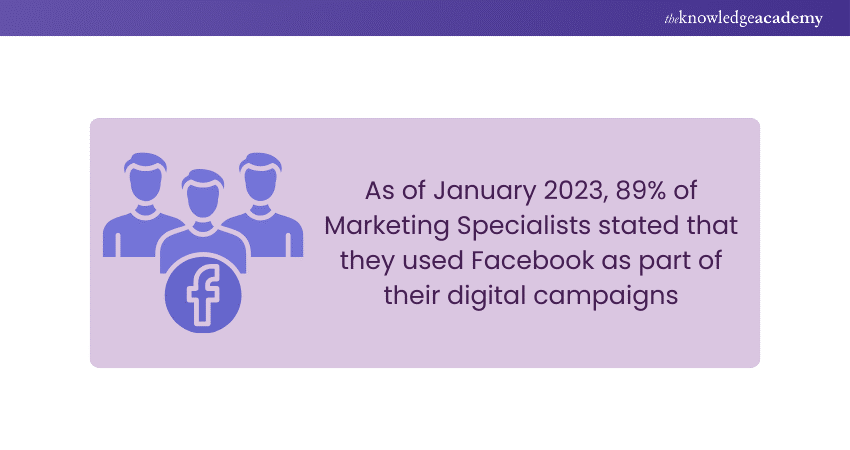
Financial Planning
Financial planning helps set individual or family financial goals and formulate a strategy to achieve them. It involves understanding your current financial situation, estimating future financial needs, and devising a roadmap to invest your resources effectively.
You can succeed in this field through the following:
a) Financial Planning & Analysis (FP&A).
b) Financial Planning software (eMoney Advisor, MoneyGuidePro).
c) Risk Assessment.
d) Tax optimisation strategies.
e) Understanding of financial products (insurance, investments, retirement accounts).
f) Retirement planning.
g) Estate planning.
Healthcare
Healthcare Technical Skills include various competencies required for effective delivery and management of Healthcare services.
Here are some skills employers look for:
a) Electronic health record systems (Epic, Cerner).
b) Medical coding (ICD-10, CPT).
c) Healthcare Data Analysis.
d) Patient Management software.
e) Telehealth technology.
Human Resources
Human resources (HR) is vital in any organisation. This department performs various functions, including helping employees gain access to benefits, understand company rules, and enable businesses to maintain and target the right talent.
To succeed in this field, you need to know the following:
a) HR software (Workday, SAP SuccessFactors).
b) Applicant tracking systems (ATS).
c) Payroll systems.
d) Data Analysis (Excel, HR Analytics tools).
e) Employee engagement platforms.
Learn modelling techniques for optimising complex systems in our comprehensive Systems Modelling Techniques Course - Register now!
Information Technology (IT)
Information Technology (IT) is undoubtedly the backbone of modern industrial infrastructure. So, having the right IT skills can be a game-changer for your career prospects.
Here are some areas you'll need expertise in:
a) Programming languages (Python, Java, C++).
b) Database Management (SQL, NoSQL).
c) Cloud Computing (AWS, Azure).
d) Network security.
e) Software Development (Agile, DevOps).
f) System Administration.

Quantitative Finance
Quantitative Finance employs mathematical models and computational techniques to analyse financial markets and securities. It's a vital aspect of the field of Finance. Some of the proficiencies needed are:
a) Programming (Python, R, C++).
b) Algorithmic trading.
c) Big data technologies (Hadoop, Spark).
d) Data Analysis (Python, R).
e) Statistical Modelling.
Software Engineering
Software Engineers perform the crucial task of developing high-quality, reliable, and efficient software solutions that meet client and customer demands.
To excel in this field, you'll need expertise in the following:
a) Agile methodologies.
b) DevOps practices.
c) Programming Languages (Java, Python, C#).
d) Software Design patterns.
e) Testing frameworks.
f) Version Control (Git).
Web Development
Web Development can range from something as simple a single static page of plain text to intricate electronic businesses, web-based applications, and social networking services. To impress prospective employers in this market, you should be proficient in the following:
a) Back-end technologies (Node.js, Django, Ruby on Rails).
b) Content Management systems (WordPress).
c) front-end technologies (HTML, CSS, JavaScript).
d) Web frameworks (React, Angular, Vue).
Presentation skills
Presentation skills are highly potent in capturing people’s attention, be it a small group of collaborators or a lecture-sized room. These skills encompass what you say, how you structure it, and the content you include to support what you say, such as videos, slides, or images.
Here are some helpful presentation skills to consider:
a) Presentation software knowledge (Projector setup or video conference knowledge).
b) Slideshow creation (Microsoft PowerPoint, Google Slides or Apple Keynote).
c) Public speaking (leading meetings, hosting sale pitches or conference presentations).
Marketing Skills
Marketing skills include defining, promoting and selling products or services. These skills are vital for crafting brand voice and image, establishing customer loyalty, and confirming profit growth.
As a modern Marketer, you must be well-versed with the following:
a) Analytics tools (Google Analytics).
b) Content Management systems (WordPress).
c) Digital marketing platforms (Google Ads, Facebook Ads).
d) SEO/SEM.
e) Social Media Management tools.
Nurture your ability to prioritise tasks and manage time effectively in our Motivation and Goal Setting Training - Register now!
Analytical Skills
Analytical skills show how to approach work-related issues, collect information and ideate solutions to streamline a process. If you've less than three years of formal work experience, you can use a functional resume to showcase transferable skills and craft multiple skills sections for job-relevant abilities.
Examples of analytical skills include:
a) Budgeting
b) Research
c) Forecasting
d) Data interpretation
e) Troubleshooting
Productivity Software Applications
Productivity software applications (also office productivity software) are used to produce information. It includes database systems, word processors, presentations, databases, charts, graphs, spreadsheets, and digital content.
Some of the commonly requested Technical Skills include:
a) Asana.
b) Google Suite (Docs, Sheets, Slides, Forms).
c) Jira.
d) Photoshop.
e) Slack.
f) Skype.
g) Smartsheets.
h) Zapier.
i) Zoom.
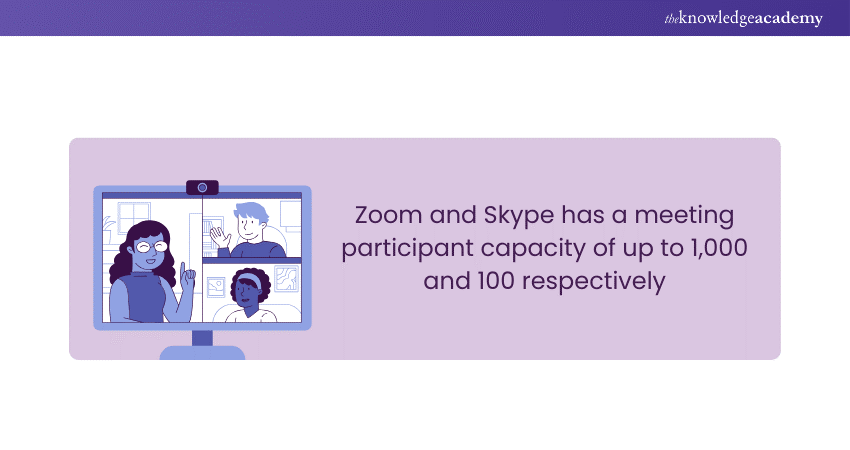
Technical Writing
Many jobs need written communication to explain complex processes in an easy-to-understand way. You may have to write product descriptions for manufacturers, press releases, web content, or brochures. Some of the top technical writing skills to consider are:
a) Blueprint design
b) Cloud/SaaS services
c) Customer Relationship Management
d) Database Management
e) Enterprise Resource Planning Software
f) Hardware description language
g) Human Resources software
h) Information Security and management
i) Inventory Management
j) Microsoft Office certifications
k) Query software
l) Structural Analysis
m) Technical documentation
n) Telecommunications
o) Video creation
Management Skills
These are the skills that help you effectively lead and mentor your coworkers. These skills include the unique ability to combine emotional intelligence, communication and decision-making. Examples of effective management Technical Skills include:
a) Active listening
b) Data Analysis
c) Task delegation
d) Risk Management
e) Evaluative skills
f) Scrum and Agile proficiency
Conclusion
In today’s rapidly and technologically evolving job market, mastering Technical Skills is essential for career growth and success. From coding to Data Analysis, Cloud Computing to Cyber Security, and Graphic Design and AI, the 25 skills outlined in this blog are empowering professionals to thrive in a competitive landscape. It's all about continuous upskilling to ensure you remain adaptable and prepared for future opportunities.
Familiarise yourself with the role of Career Development in the workplace with our Career Development Course - Sign up now!
Frequently Asked Questions

Yes, proficiency in Microsoft Office is considered a technical skill. Microsoft Office skills encompass the ability to use applications such as Excel, PowerPoint, Word, and Outlook for various tasks.

Technical Skills are essential because they enable professionals to conduct their everyday tasks, manage contacts, book virtual meetings, and troubleshoot technological problems. These skills come into play in a broad range of domains and industries.

The Knowledge Academy takes global learning to new heights, offering over 30,000 online courses across 490+ locations in 220 countries. This expansive reach ensures accessibility and convenience for learners worldwide.
Alongside our diverse Online Course Catalogue, encompassing 19 major categories, we go the extra mile by providing a plethora of free educational Online Resources like News updates, Blogs, videos, webinars, and interview questions. Tailoring learning experiences further, professionals can maximise value with customisable Course Bundles of TKA.

The Knowledge Academy’s Knowledge Pass, a prepaid voucher, adds another layer of flexibility, allowing course bookings over a 12-month period. Join us on a journey where education knows no bounds.

The Knowledge Academy offers various Software Engineering Courses, including the Systems Modelling Techniques Cours and the Systems Development Essentials Training. These courses cater to different skill levels, providing comprehensive insights into Importance of Technology.
Our Programming & DevOps Blogs cover a range of topics related to Technical Skills, offering valuable resources, best practices, and industry insights. Whether you are a beginner or looking to advance your Programming skills, The Knowledge Academy's diverse courses and informative blogs have got you covered.
Upcoming Programming & DevOps Resources Batches & Dates
Date
 Systems Modelling Techniques Course
Systems Modelling Techniques Course
Fri 28th Feb 2025
Fri 4th Apr 2025
Fri 27th Jun 2025
Fri 29th Aug 2025
Fri 24th Oct 2025
Fri 5th Dec 2025







 Top Rated Course
Top Rated Course



 If you wish to make any changes to your course, please
If you wish to make any changes to your course, please


